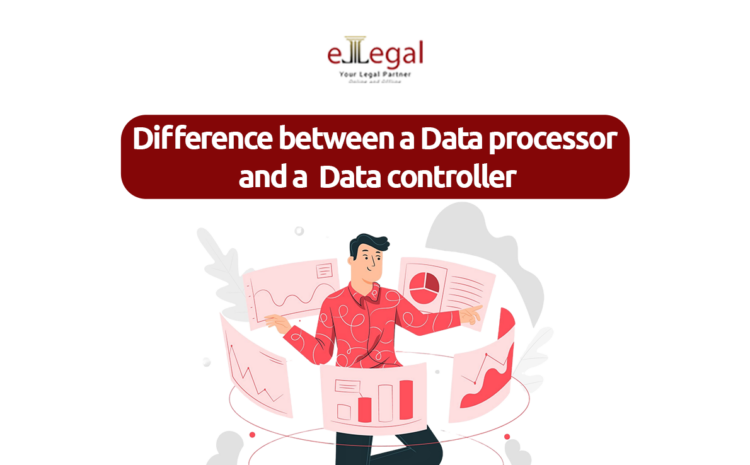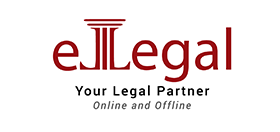
Regarding handling personal data, two different roles come into play: Data controllers and data processors. While these terms are often used interchangeably, they have distinct responsibilities and legal obligations relating to data privacy and protection in an organization.
Understanding the fundamental differences between a data processor and a data controller is an important concept. To a large extent, the data controller is the one that collects or possesses the data, and the data processor is a third-party engaged by the controller to do data processing.
To have a clearer understanding of the difference between a data controller and a data processor, this post will do justice in providing their differences.
Data Controller Meaning?
A data controller is a service provider or organization that collects and determines the purposes and means of processing personal data of its customers or clients. In simpler terms, a data controller decides why and how personal data collection, storage, and use occurs. They have the utmost obligation to ensure that all data processing activities comply with applicable data protection laws and regulations. Data controllers are the bearers of the legal obligations associated with data protection, including providing transparency, obtaining consent, and safeguarding the personal data of data subjects.
Data Controller Responsibilities?
The responsibilities of a data controller are comprehensive and pivotal in guaranteeing that the lawful and ethical handling of personal data is abided by. Some key responsibilities of a data controller are:
- Ascertaining the Purpose and Means of Processing: Data controllers have the primary responsibility of determining the purpose of personal data collection and processing. They must establish the legal basis for data processing and ensure it is in order with the rights and expectations of the individuals whose data is being processed, or data subjects. Data controllers must define the appropriate means and methods of processing, taking into account data protection laws and regulations.
- Obtaining Consent: In many cases, data controllers are mandated to obtain valid consent from individuals before processing their personal data. This involves providing clear and concise information about the purpose of processing, the types of data involved, and any potential third-party recipients. Data controllers have to make sure that consent is given freely, specific, informed, and can be withdrawn easily.
- Ensuring Data Security: Data controllers need to protect the data of subjects therefore they bear the responsibility of implementing appropriate security measures to protect the personal data they collect and process. This includes safeguards against unauthorized access, loss, destruction, alteration, or disclosure of personal data. Other measures like encryption, access controls, and regular security assessments are important for maintaining data confidentiality, integrity, and availability.
- Promoting Individual Rights: Data controllers must ensure data subjects are able to exercise their rights regarding their data. This includes the right to access, rectify, erase, restrict processing, and object to processing. Data controllers must have procedures in place to handle privacy requests swiftly and efficiently. Subjects being able to assert their rights and maintain control over their data boosts their confidence in the data controller and raises their integrity.
- Performing Data Protection Impact Assessments (DPIAs): There are situations where data processing is likely to result in high risks to data subject rights and freedoms and data controllers are required to conduct DPIAs to mitigate such risks. Visit our website for more information on all you need to know about DPIAs.
- Establishing Data Processing Agreements: When engaging data processors to handle personal data on their behalf, data controllers must establish clear and comprehensive data processing agreements. This agreement contains specific instructions, security obligations, data protection, and other terms that protect the interest of the data subjects. requirements that the data processor must adhere to. By establishing these contracts, data controllers ensure that processors handle personal data in compliance with applicable data laws and regulations.
Data Controller Examples
An example of a data controller is;
A multinational transportation company collects customer data during the trip booking process, like names, addresses, and payment details. In this scenario, the transport company acts as a data controller because it determines the processing of the collected data.
Data Processor Meaning?
Data processors are entities or organizations that process personal data on behalf of data controllers. They act under the purview and instruction of data controllers and handle personal data for the specified purposes defined by the data controller and stated in the DPIA. Through the DPIA, data processors are contractually bound to ensure data protection, security, and confidentiality. They don’t have the freedom of decision-making like the data controllers and as such must adhere strictly to the instructions provided by the data controller.
Data Processor Responsibilities?
The responsibilities of a data processor are crucial in data protection and they are;
- Complying With Instructions:Data processors must follow the instructions provided by the data controller when processing the personal data of data subjects. In no situation should a data processor refuse to comply with these instructions unless legally required. Data processors should only collect, store, and use personal data as instructed to fulfill the specific purposes defined by the data controller and should not use the data for any other purposes without explicit approval.
- Ensuring Data Security and Confidentiality: Data processors also have the obligation to implement tough security measures to protect the personal data they process. This includes maintaining the confidentiality, integrity, and availability of the data and preventing unauthorized access, loss, or disclosure.
- Assisting the Data Controller: Data processors are mandated to assist data controllers in meeting their responsibilities. This may involve supporting the data controller in responding to data subject requests (DSRs) to exercise their data protection rights or any other type of assistance needed by the data controller.
- Subcontracting and Data Sharing: If a data processor hires a subcontractor or shares personal data with third parties, they must ensure these entities meet the same data protection standards. Data processors should have appropriate contractual agreements in place with these parties, outlining their data protection obligations and ensuring personal data is processed per applicable laws and regulations.
- Data Breach Notification: In the event of a data breach, data processors have a responsibility to immediately notify the data controller of the incident. All necessary information should be provided to assist the data controller in fulfilling their obligations to notify affected individuals and regulatory authorities, as required by data protection laws and regulations.
- Data Deletion and Retention: Data processors must follow the data controller’s instructions regarding the retention and deletion of personal data. Once the processing purpose is fulfilled, data processors should securely delete or anonymize the personal data, unless there are legal obligations requiring its retention. They are not to retain personal data beyond the specified retention periods defined by the data controller.
Data Processor Examples
To have a clearer understanding of who a data processor is, consider the below example;
A software company that provides Human relations services to various businesses collects and stores customer data on behalf of the businesses using the service. In this case, the software company acts as a data processor because it processes the customer data according to the instructions given by the businesses, which are the data controllers.
Data Controllers vs Data Processors?
The data controller determines the purposes and means of processing personal data and carries the primary responsibility for complying with data protection laws.
Data processors act on behalf of data controllers and process personal data based on their instructions.
While both roles play a crucial part in the data processing lifecycle, the data controller has more control and decision-making authority over the data processing activities.
The data controller gives instructions for processing to the data processor. The processor cannot process personal data except upon the controller’s instructions. If a processor unlawfully processes personal data without instructions, it may be considered to be a violation.
The controller is responsible for implementing measures to ensure that processing occurs under data protection laws and regulations. The processor has the responsibility of helping the controller with certain tasks, including information necessary to demonstrate compliance.
The controller can engage any processor that meets the management requirements imposed by data protection laws and regulations while the data processor may only engage processors that are approved or based upon the instructions of the controller.
Conclusion
Data controllers and data processors have varying responsibilities under the law, but it is worth noting that their roles are complementary in reaching the goals of protection, transparency, and accountability.
Data controllers perform much of the regulatory framework, while processors indulge in a more enforceable role. However, they both have liabilities under the law that make it critical for each to uphold their end of the agreement. Working together promotes compliance and helps both parties avoid hefty fines that come with violating the rules. You can contact us for a free consultation for more information.
We at eLegal Consultants are ready to journey with you to actualize your dreams. Contact us today.





